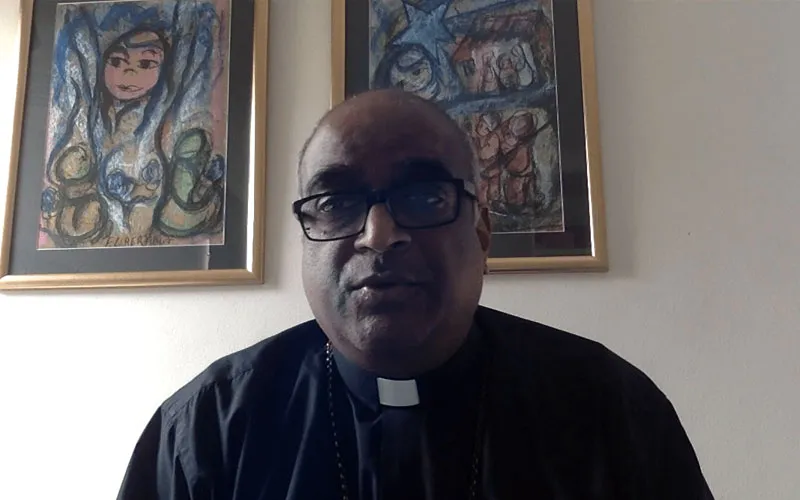Suggesting ways in which the Synodal process can be executed across people of different faiths, the South African Bishop says, “There are a few avenues we could follow. We could learn about the belief systems of the various groups. We can pray and enter into dialogue.”
“We will find that there is a lot more that we have in common than the features which separate us. Not all dialogue ends with perfect accord,” the member of the Oblates of Mary Immaculate (OMI) further says, and continues, “That in itself ought not to be a problem as we can and should agree to disagree, but not abandon the dialogue and the working together.”
He underscores the need for the people of God to work together in such projects as alleviating hunger, caring for the neighbor, and “working for a better society.”
In his November 12 reflection, Bishop David makes reference to the Saint of the day, St. Josaphat the Martyr, whom he says lost his life during the time of schisms because he worked for unity among the followers of Christ.
“(Saint) Josaphat is an important symbol in today’s Church as we strive for unity in diversity… He was subjected to mob violence and lost his life,” the Auxiliary Bishop of South Africa’s Cape Town Archdiocese says.
He further makes reference to the Ecumenical gathering at the end of October to celebrate the joint declaration on the Doctrine of Justification signed by the Catholic Church and the Lutheran Federation on 31st October 1999 in Augsburg, Germany, and says that it was a reminder on the importance of Christian unity, which is an element of Synodality.
“This gathering was a sharp reminder to us that the disunity among Christians is perhaps the biggest betrayal of Jesus. It goes against everything he lived for, died and rose for, and sent the Holy Spirit for,” the South African Bishop says in his reflection.
He further reflects on the Gospel of St. John, which he says articulates the need for unity and emphasizes the notion of Synodality that seeks to incorporate all people as the people of God.
“May they all be one, just as, Father, you are in me and I am in you, so that they also may be in us, so that the world may believe it was you who sent me. I have given them the glory you gave to me, that they may be one as we are one,” Bishop David says, quoting a passage from the Gospel of St. John, Chapter 17.
Silas Mwale Isenjia is a Kenyan journalist with a great zeal and interest for Catholic Church related communication. He holds a Bachelor’s Degree in Linguistics, Media and Communication from Moi University in Kenya. Silas has vast experience in the Media production industry. He currently works as a Journalist for ACI Africa.








